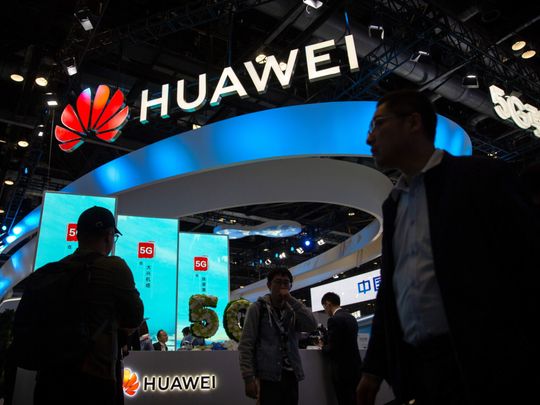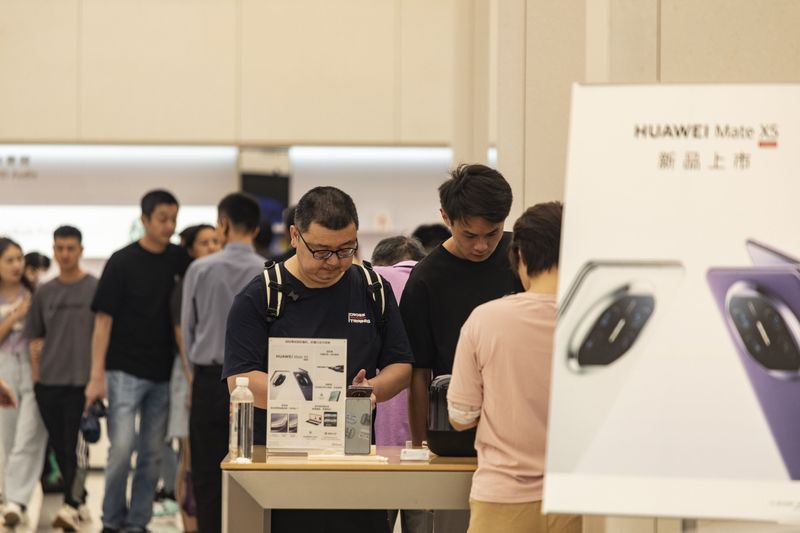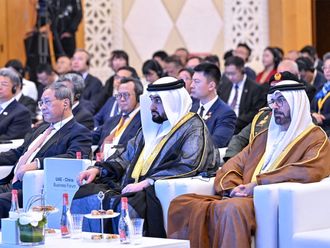
Beijing: Huawei Technologies has established itself as the corporate symbol of China’s drive for technological self-reliance. Now the unlisted technology company is also sparking the nation’s hottest stock trades.
It started with the late-August debut of its latest smartphone, the Mate 60 Pro, which lured droves of consumers in the midst of a sluggish economic recovery. A retail-fueled equity boom followed, swelling the combined value of 32 Huawei suppliers tracked by Bloomberg by about $34 billion since the launch, defying a selloff in the broader market.
“Huawei has been one of the few bright spots, in both the market and as a watershed in boosting people’s confidence on the nation’s outlook,” said Cheng Hao, a fund manager at Zhejiang Feiluo Asset Management Co. While the stock trading shows “signs of speculation, there is real value, and it has potential for the longer run.”

The Mate 60 Pro, featuring a homegrown high-tech semiconductor, is being hailed as a triumphant return to mobiles, burnishing national pride in the company. The phone is powered by a new Kirin 9000s chip that was fabricated in China by Semiconductor Manufacturing International, according to a teardown of the handset that TechInsights conducted for Bloomberg News. The processor is the first to utilize SMIC’s most advanced 7-nanometer technology and suggests Beijing is making some headway in attempts to build a domestic chip ecosystem, according to the research firm. Reports in the past week of strong early demand for a Huawei-backed electric vehicle have also added to the positive news flow.
Mainland-listed shares of Huawei’s chipmaking partner SMIC have climbed about 12 per cent since the smartphone’s launch. Huawei EV partner Seres Group has more than doubled over the same period, while software supplier Isoftstone Information Technology Group has jumped 60 per cent, making them the top two performers on the MSCI Asia Pacific Index.

The CSI 300 Index of mainland stocks is down more than 5 per cent in 2023, on track for a third consecutive year of losses.
Previous China equity drivers including internet giants like Tencent Holdings have been struggling to find new growth opportunities that excite investors. Themes from artificial intelligence to state-owned enterprise reform failed to provide lasting boosts for the fickle retail-dominated market, leading some to caution that the Huawei-related trades could face similar fates.
“These supplier companies have not yet seen significant growth driven by Huawei,” said Fanwei Zeng, an analyst at GAM Hong Kong. “We believe investors are likely to lose interest when they find other hot topics in the future.”
How much further the theme runs may depend on Huawei’s success with upcoming product releases. The company has other EVs in the works with a number of partners, and continues to launch new tablets, smart TVs and wearables as well as smartphones.








